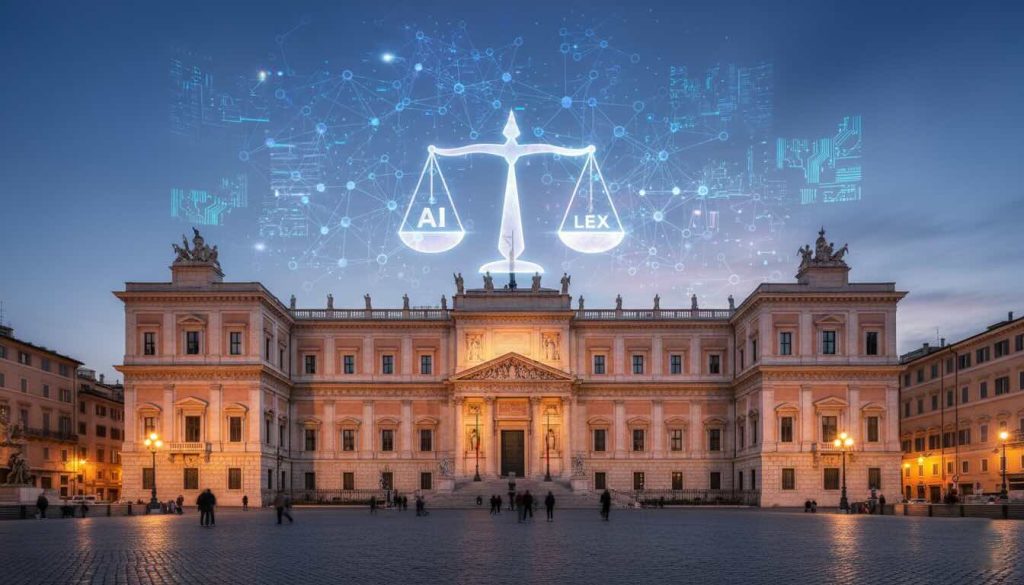| Insight | Why It Matters | Application | Tags |
|---|---|---|---|
| Italy enacts one of the world’s most detailed AI laws | Sets a new European standard for AI regulation | Impacts global AI companies and data laws | Italy AI Law, EU AI Act, global tech policy |
| Healthcare, IP, and criminal law now directly include AI clauses | Legal clarity and accountability for AI-driven industries | Affects hospitals, research centers, and creators using AI | AI governance, healthtech, AI copyright |
| New criminal offenses for AI-altered content | Prevents misuse of deepfakes and manipulated media | Forces social media and tech firms to audit content authenticity | AI ethics, deepfakes, misinformation |
| €1 billion AI investment plan | Boosts innovation and cybersecurity capacity | Encourages startups and global collaboration | AI funding, cybersecurity, quantum computing |
Italy has officially introduced one of the most comprehensive national AI laws to date, setting a powerful precedent for Europe and the rest of the world. The Italian AI Law (Law No. 132/2025), effective from October 10, 2025, complements the broader EU AI Act and defines exactly how artificial intelligence systems can be used across industries.
This legislation not only regulates AI governance and compliance but also places Italy among the global leaders shaping the future of responsible AI. The law is expected to influence multinational corporations, healthcare systems, and digital platforms operating across Europe and beyond.
The healthcare sector is one of the law’s most directly affected areas. While AI can now assist in diagnosis and treatment, doctors remain the final decision-makers. Every patient must be informed when AI tools are used, ensuring medical transparency and ethical accountability. Research bodies such as universities and clinical institutions are encouraged to use anonymized data for AI-driven studies, creating new opportunities for innovation while respecting privacy rules.

The intellectual property and copyright sections of the law also break new ground. Works created with AI assistance can now be protected under copyright, as long as they stem from human intellectual effort. This protects human creativity while acknowledging the growing role of AI in artistic and data-intensive fields.
Italy’s law goes a step further with criminal enforcement. It introduces penalties for individuals or companies that share falsified or AI-altered media, including deepfakes. The goal is to limit reputational harm and reduce the spread of manipulated content online a move that could inspire similar laws in the United States and other regions.
In the employment and labor sector, AI is encouraged as a productivity tool but never as a replacement for human workers. The law ensures employees’ privacy, mandates transparency about AI use, and establishes a National Observatory to monitor how automation affects job markets.

The regulation also reaches public administration and judicial services, authorizing AI for efficiency improvements while ensuring that final judgments and policy decisions remain in human hands. In security and defense, AI systems are allowed under controlled supervision but must still comply with human rights and cybersecurity standards.
At the core of implementation are national bodies such as AgID (Agency for the Digitalization of Italy) and the National Cybersecurity Authority (ACN). These agencies will oversee compliance, perform inspections, and promote AI development under safe and ethical parameters.
To stimulate innovation, Italy has pledged €1 billion in investments to strengthen AI research, cybersecurity, and quantum computing. The initiative aims to nurture young talent and support startups developing responsible AI tools, opening the door for cross-border collaboration with global tech firm.

The Bigger Picture
Italy’s AI Law could redefine how global tech companies approach compliance, ethics, and AI deployment. By blending innovation with regulation, Italy is signaling a new era where AI advancement must align with accountability. The ripple effect is already reaching the EU, the U.S., and Asia, as nations consider how to balance economic opportunity with risk management. With its emphasis on transparency, data protection, and human oversight, Italy’s model may soon become the blueprint for future AI laws worldwide. Businesses across finance, healthcare, and creative industries should monitor this development closely to stay compliant and competitive.
#AILaw2025 #ItalyAI #EUAIACT #TechRegulation #AICompliance #DigitalPolicy #ResponsibleAI #AIInnovation #AIinHealthcare #GlobalTechTrends #AIandEthics #DeepfakeLaws #CybersecurityAI #QuantumComputing





0 Responses
No responses yet. Be the first to comment!